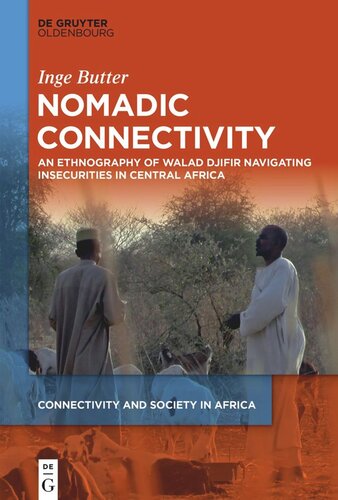

Most ebook files are in PDF format, so you can easily read them using various software such as Foxit Reader or directly on the Google Chrome browser.
Some ebook files are released by publishers in other formats such as .awz, .mobi, .epub, .fb2, etc. You may need to install specific software to read these formats on mobile/PC, such as Calibre.
Please read the tutorial at this link: https://ebookbell.com/faq
We offer FREE conversion to the popular formats you request; however, this may take some time. Therefore, right after payment, please email us, and we will try to provide the service as quickly as possible.
For some exceptional file formats or broken links (if any), please refrain from opening any disputes. Instead, email us first, and we will try to assist within a maximum of 6 hours.
EbookBell Team

4.3
88 reviewsA focus on the everyday has produced this ethnography, which hopes to give a nuanced voice to an extended family of semi-sedentary nomads, living at the centre of a country and region known for its political turmoil, ecological insecurities, and socio-economic hardship. The everyday of the Chadian Walad Djifir is one in which sedentarity and mobility are approached as two entwined parts of a whole, and where economic and geographical boundaries do not necessarily form constrictions. The ferīkh (nomadic camp) is where all of the Walad Djifir’s networks meet, and often also begin— a physical place embodying various networks and connections, which span time and geographical space. This analytical and methodological approach gives insight in how regional trends can be understood in light of the Walad Djifir’s daily lives. Over time, the Walad Djifir have developed ways of coping and dealing with insecurities, interacting with infrastructural, technological, and socio-political developments in specific ways. In exploring how such insecurities and crises become anchored into the everyday, the ferīkh provides answers. It is precisely the mundane elements of daily life which anchor disruption.